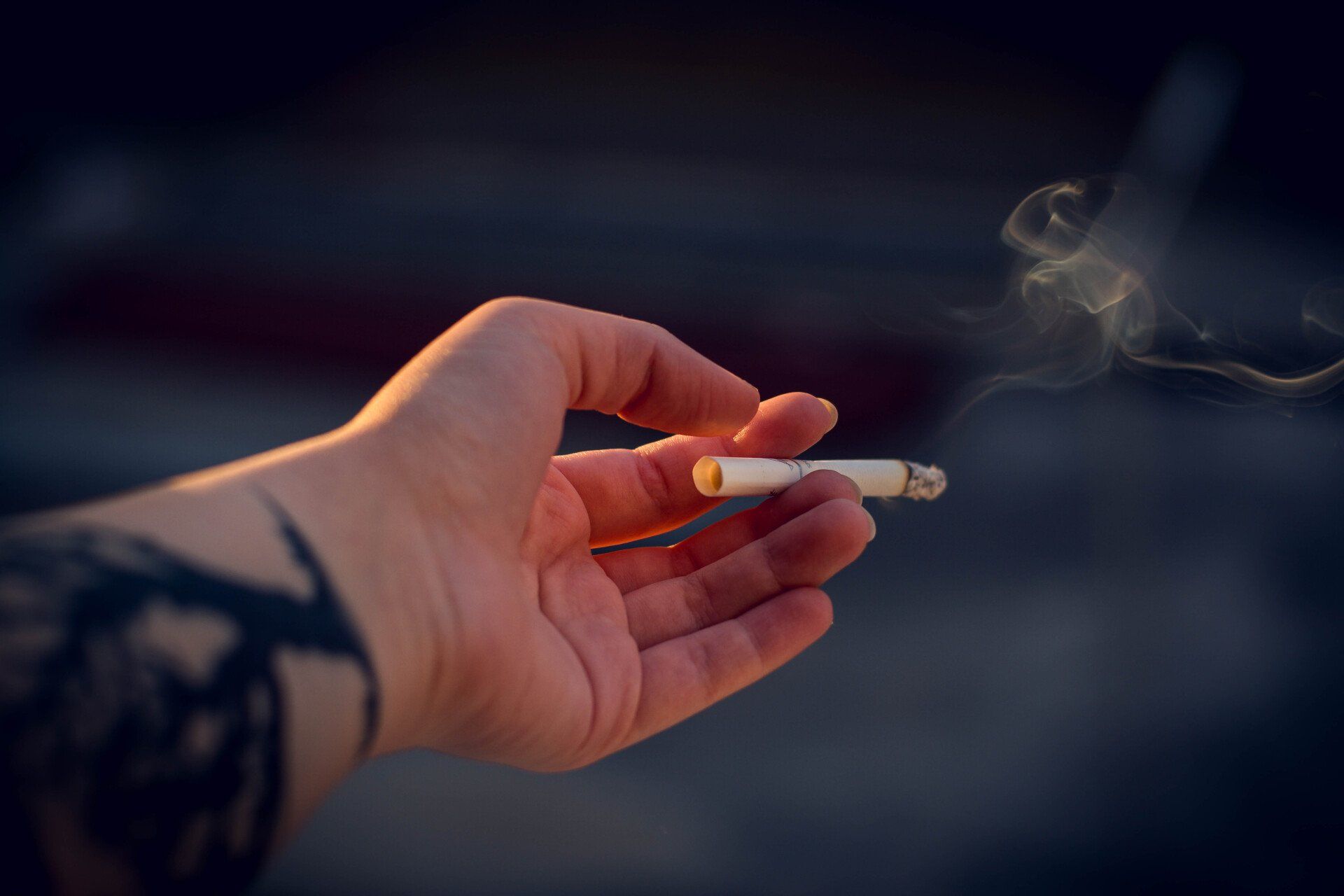How Do I Stop Smoking?
Tips to help you kick the habit.

Smoking cigarettes is a form of recreational drug use and the leading cause of preventable early death in the US.
When you smoke tobacco, you inhale harmful chemicals and smoke into your lungs; these quickly absorb into the bloodstream, leading to multiple health conditions. In addition, the nicotine in tobacco is highly addictive; your body becomes accustomed to the drug, making it challenging to quit ingesting it without withdrawal symptoms.
Smoking also puts the people around you at risk. People who are frequently exposed to second-hand smoke have the same health concerns as those who smoke themselves.
Any form of tobacco is unsafe, including cigarettes, cigars, pipes, hookahs, chewing tobacco, snuff, and vaping.
Quitting smoking is one of the best ways to improve your health and the health of those around you.
How do I quit smoking?
Most people who smoke struggle with the addiction. It is challenging for many people to give it up.
You will be more likely to quit if you know what to expect and prepare for it. When you give up smoking, you may notice
- irritability
- hunger
- fatigue
- headaches
- depression
- difficulty sleeping
- difficulty concentrating
To stop smoking, you need a reason, a plan (and maybe a backup plan or two), and some support before you begin.
Try these tips for smoking cessation:
- Identify your reasons and motivations for quitting. Why do you want to quit smoking? Your health? Your family's health? Improve your finances? Figure out your motivation and write it down. What can you do with the money or time you save by not smoking?
- Find some self-help books and other information before you begin. Keeping your resolve when the cravings start will be easier if you know what you are getting into.
- Look for support groups, smoking cessation counseling, or even apps that can give you some support and advice along the way. Smokers who use proven smoking cessation therapies, such as behavioral counseling or medication, are more likely to succeed.
- Tell someone about your pledge. Tell your family or friends you will quit smoking and let them hold you accountable.
- Find your triggers and make a plan for them. Do you usually want to smoke after a meal? Make different plans for what you will do after meals. Do you smoke before bed? Plan another activity. What will you do when you are stressed instead of smoking? Make plans for when you know you will feel the urge to smoke.
- Think about past attempts and learn from them.
- Choose a method. Go "cold turkey, or slowly cut back on the number of cigarettes per day, the time you spend smoking, or the number of puffs you take each time you smoke until the official "Quit Day."
- Set a "Quit Day' and stick with it. Pick a relatively stress-free time to quit smoking and ensure you are mentally ready.
- Get rid of cigarettes, cigars, ashtrays, lighters, or other smoking paraphernalia.
- Ask friends and family members not to smoke around you and avoid places that sell cigarettes or where people are smoking.
- Find ways to fill your time, mouth, and hands. Suck on hard candies or suckers, chew on a straw or cinnamon sticks, keep a Rubics cube handy, doodle, or take up a hobby.
- Ask your doctor about medicines, gums, or patches that may help.
- Eat a healthy, balanced diet.
- Have healthy snacks on hand to combat cravings.
- Drink plenty of water.
- Avoid alcohol and caffeine. People who drink are more likely to start smoking again after quitting.
- Exercise regularly.
- Get plenty of sleep.
- Celebrate small victories. Keep a stock of your favorite candies or ice cream to celebrate when you go a whole day without smoking, or maybe even after you successfully get through a particularly difficult craving. Call up a friend and celebrate. Allow yourself a Starbucks coffee each morning if you did not smoke the day before.
- Set up a reward system for yourself. Put the money you would have spent on cigarettes into a piggy bank to save for a vacation or some other goal or use the extra time to learn a hobby you have always wanted to try.
- Try complementary health options, such as yoga, mindfulness meditation, relaxation techniques, acupuncture, and hypnosis. Even though there is not much medical proof that these things work, they may be helpful for some people.
- Look into natural supplements which may help reduce cravings. But do your research; "natural" does not always mean safe.
- Prepare for relapse; determine that you will keep going, even if you slip and have another cigarette. Use relapses as opportunities to learn and grow. Why did I slip up? How can I be more prepared next time?
- Take urges and days one at a time.
- Be prepared for the urges:
- Have something readily available to occupy your hands or mouth when the urge to smoke comes.
- Wait for several minutes for the urge to pass, and then wait for a few more. For most people, the craving will go away within a few minutes.
- Remind yourself of why you are quitting and the benefits of quitting.
- Talk to your doctor if you need help and support. They may be able to help you find nicotine replacements (medications, gums, patches, etc.), support groups, or counselors that can help you.
Don't be discouraged if quitting is difficult for you; most people who quit smoking need a few attempts before they are successful.
The key is not to quit trying to quit! Instead, learn from your mistakes, recommit, and keep up the good work.
Do you need content that will educate your patients and improve their engagement?
Contact me!
Sources:
America Heart Association. (2018). 5 Steps to Quit Smoking and Vaping | American Heart Association
CDC. (2022). Tips For Quitting | Quit Smoking | Tips From Former Smokers | CDC
Johns Hopkins Medicine. (n.d.). Smoking and Cardiovascular Disease | Johns Hopkins Medicine
National Institute on Aging. (2019). Quitting Smoking for Older Adults | National Institute on Aging (nih.gov)
NCCIH. (2021). Quitting Smoking | NCCIH (nih.gov)
NIH. (2022). Smoking and Your Heart - Strategies To Quit Smoking | NHLBI, NIH











